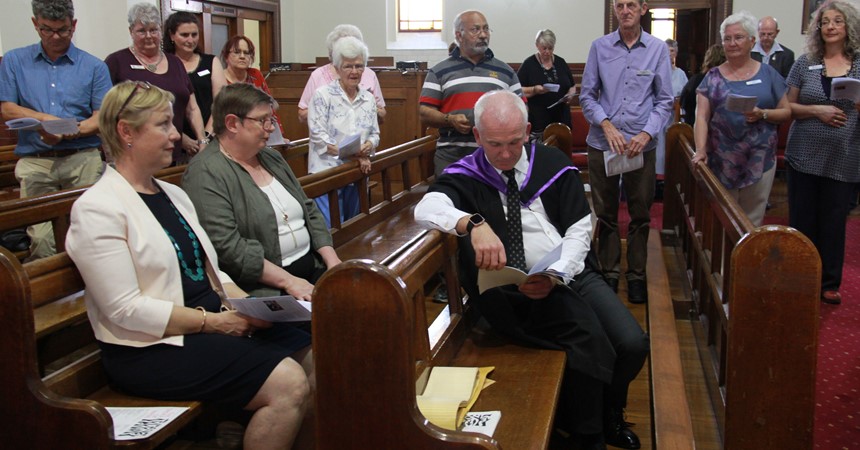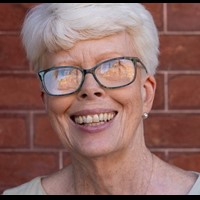Over the weekend I was sent a link to a lecture given by our Richard Lennan at Villanova University on November 1. In the interests of transparency, I have to confess that I love listening to Richard. The lecture is not about liturgy. Its title is Seeking the right side of history: Theology and the Sexual Abuse Crisis. Essentially, it is about who we are as a community of faith and how we are called to live into an authentically Catholic response to this issue. As usual with Richard, it is an excellent thought provoking lecture.
One of the aspects of the lecture that interested me was the framework of ‘unlearning, learning and relearning’ Richard used to analyse the issue. It is the same framework used to structure the final report on the Amazonian Synod. It is also a popular educational framework.
Theological reflection on any issue begins with God and proceeds to an understanding of who we are as an ecclesial community. And so Richard’s reflection begins with the divine call to conversion. Conversion is intrinsic to our nature and the agent of our conversion is the Holy Spirit. Conversion is a complex life long process of becoming more and more true to the divine image in which we are created. The ‘unlearning, learning, relearning’ framework is a natural fit with a community called to constant change as we seek always to listen to the Spirit and respond by better aligning our life, mission and ministry with the call of the Gospel. Jesus always calls people to ‘unlearn’. ‘You have learnt… But I say this…’ (Mt 5: 20ff). He calls us to ‘learn’ from the way he lived and the stories he told. And he calls us to ‘relearn’, the need for which the poor old disciples demonstrated over and over.
Again, I hear you asking, what does this have to do with liturgy?
Firstly, the lecture is a good reminder that whenever we reflect on the liturgy or participate in liturgical formation, we begin not with the liturgy itself, but with the Church and with scripture, Christology and loads more.
Liturgy is not celebrated in isolation but in and by the Church. Liturgy is not an end in itself. We all know the ancient adage, ‘the liturgy (most particularly the eucharist) makes the Church.’ It is equally true to say that the Church makes the liturgy, because in our very presence and ministry we embody and shape the liturgy. Understanding the ecclesial context of liturgy matters. The theological process Richard demonstrates is essential to analysing any liturgical issue: Who is God? Who are we? What is the nature and purpose of liturgy?
Secondly, I think the ‘unlearning, learning, relearning’ framework is a good framework to bring to any formation for liturgical ministry. Like the Church, liturgy embodies the mystery of God. We are therefore always seeking to deepen and expand our liturgical understanding, to be open to liturgical conversion and to engage in a process of liturgical ‘unlearning, learning and relearning.’ We are called to ensure that our liturgical practices do in fact align with our belief, do in fact embody and reveal the Paschal Mystery, do in fact enable the community to fully, consciously and actively participate in the Paschal Mystery. The authenticity (not the validity) of our liturgy, and the integrity of the Church it forms as a Sacrament in Christ, depends on the integrity and authenticity of our prayer.
As Richard outlines so well, the God initiated conversion dynamic opens us to grace, to freedom, to possibility, to hope and to days filled with ‘aha’ moments.
So how do we as a liturgical people and liturgical ministers remain fit for life, mission and worship? As indicated above, our focus must not be restricted to things liturgical. It must also consider things ecclesial. We must stretch our understanding of who we are as an ecclesial community and consider our liturgical understandings in this context. What sort of Church are our liturgical celebrations making?
Luckily the diocese has two significant formation opportunities to support our ‘faith seeking ecclesial understanding’ and the ‘unlearning, learning, relearning’ process embedded in this.
Firstly, in 2020 the 12 month Christian Formation Course (CFC) will run again in the diocese. The flyer contains information about the course and the Expression of Interest Form those interested need to complete. In a world of online learning, the CFC offers face-to-face formation in the context of community and via a process of reflective dialogue. Over the 12 months the learning community becomes an ecclesial community, as participants support each other in the ‘unlearning, learning, relearning’ process of conversion.
Secondly, beginning in June 2020, in partnership with Australian Catholic University (ACU), the diocese is offering a Graduate Certificate in Mission and Culture. See the flyer for further information and the Expression of Interest form to apply. Again this is a face to face course where the university comes to us and we ‘unlearn, learn and relearn’ together. I will certainly be enrolling.
Liturgical formation is always best when informed by these more comprehensive courses. The Diocesan Liturgy Council (DLC) has formatted a pathway to support the development of our liturgical understanding. You will find it on the website and the information is downloadable in a pdf.
All formation is at the service of conversion. All formation is at the service of shaping every aspect of our life – as disciples and as communities – to be more authentically Catholic so that we embody more and more transparently the mystery of God.
The most powerful form of formation is liturgy. It is therefore critical that we consider what the ‘unlearn, learn, relearn’ framework offers our reflection on our celebration of the liturgy and our liturgical ministry. What liturgical practices do we need to unlearn? What liturgical practices do we need to learn? What liturgical practices do we need to relearn? There is much to reflect on and talk about together. Thank you Richard for nudging our faith to seek understanding that shapes authentic liturgy and life.
The photo accompanying todays story is from the recent launch of the Tenison Woods Education Community (TWEC) and the inauguration of the partnership between the diocese and Australian Catholic University.

